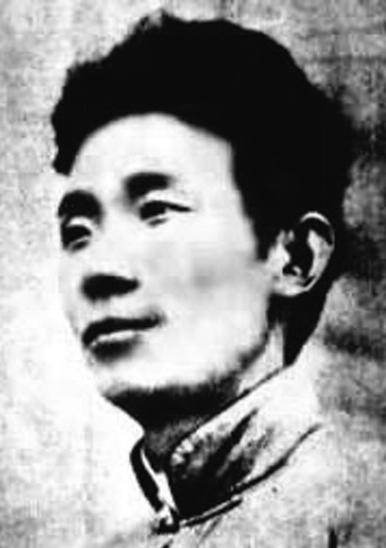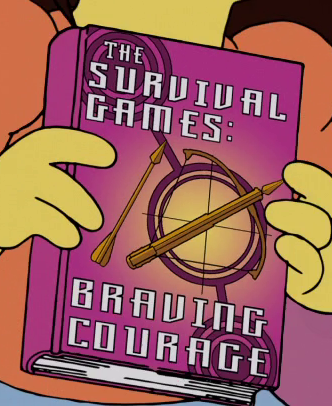Buchi Emecheta is a Nigerian born writer living in London. She was born in Lagos to Igbo-parents (a minority in Nigeria). Emecheta was married at the tender age of sixteen and moved to London with her husband. After six years of marriage, they separated. She took an honors degree in sociology while supporting her five children all by herself. Her first book, “In the ditch” was published in 1972; it was a short story collection about her experiences as a poor single mother in London. After that she has published several works, including the highly-praised “The Joys of motherhood” and “Second-class Citizen”.
“Second-class citizen” tells the story of Adah, whose life events are similar to Emechetas. The novel starts by telling about Adah’s childhood. She is lucky enough to go to school, to only be promised as a wife to a man she’s never met. When she has her 16th birthday, Adah moves to London to live with her student husband, with home she has two children with. Her husband, Francis, takes his time with his studies, while Adah struggles along to try and feed the whole family. As time goes on, Francis becomes less and less interested in his studies, while bullying Adah to bend to his will. Adah also realizes that the Londoners don’t like blacks very much.
Adah suffers racial discrimination out in the world and gender discrimination at home. She realizes that since she is a black woman; she will be viewed by society as a second-class citizen.
Emecheta’s language is gentle and frank. Emecheta looks at Adah’s situation with sharp eyes: she critics Francis and other African men for being male chauvinist and patriarchal, but she also critics the Londoners and other Europeans for being racist and not very understanding towards African immigrants. Adah is shown as a typical Nigerian woman: her value is measured by the number of sons she gives birth to. Adah’s hard work is being taking for granted; when she voices her opinion she is met by anger. She does what she can to help her children, knowing that she is the only one they can rely on.
Emecheta gives a pretty hopeless image of the role women have in the Nigerian society. At the very first page of the book it is told that Adah’s parents didn’t even bother to record her birth since “She was such a disappointment to her parents” that were expecting a boy. When Adah has her first child, Francis’ parents become deeply disappointed and angry that their first grandchild is a girl. Emecheta makes it clear to the viewer that Adah has to deal with people that don’t even consider girls to be worth giving birth to. Adah also gets to start school later than her brother Boy. Unlike Boy, she must give up her studies for the family. Her job is to make her husband look good and fortunate. Adah is also just people always blaming women when things don’t work out. There’s a scene where, after fighting with her husband and being beaten by him, she goes to a church to pray. There she meets another Igbo person, a man, who is able to guess that she has had a fight with her husband. The man then offers Adah that they can pray together, asking God to get her husband to forgive her. Adah then thinks to herself: “Typical Igbo way of thinking. It is always the woman’s fault if there’s been a fight between a husband and his wife”.
Violence is also a subject that is explored in this novel. It is not graphic or a major part of the book, but it’s still a powerful subplot. Francis occasionally beats Adah when he thinks she’s not being obedient enough. Adah just lets it happen, until she decides that she’s had enough. After a while, she starts to defend herself by hitting him back. Showing him that she won’t be intimidated by his fist.
Adah’s ideas and own wishes also collide with the English society. She is unable to get help when she needs it because of cultural misunderstandings and prejudices. She can feel the hostility from whites as she walks down the street.
“Second-class citizen” is a book that deals with the subject of oppression in a realistic, touching way. Emecheta’s prose is easy to read and truly gives an insight to what it’s like to be a Nigerian woman.











Thanks for the post.
Once again you point me to interesting authors who I am unfamiliar with, and who are extremely interesting (Not to mention engaged with the issues of the new century as well as giving a voice to the silenced of our time). My constant and ever elusive education continues!
Two quotes from her which are tragic and amusing simultaneously:
“A hungry man is an angry one.”
“The first book I wrote was The Bride Price which was a romantic book, but my husband burnt the book when he saw it. I was the typical African woman, I’d done this privately, I wanted him to look at it, approve it and he said he wouldn’t read it.”
and for your amusement, and maybe to become a fan, her facebook page is here:
http://www.facebook.com/pages/Buchi-Emecheta/64375904629?v=info
Once more thanks, and keep them coming.
I am writing a paper about black womens writing in Britain, and it has been a pleasure to come across this writer. The Ditch and Second class citizen are the next two books i read- once the essay is complete. Thanks for the post!
Hello!
Good luck on your paper! Glad my post was of some help.
Interesting topic your writing on. Must be fun to write about. 🙂
Your welcome for the post, thank you for the comment!
I to also have a project to complete for senior English on this author. This has been great help and don’t worry, I won’t plagiarize instead I will keep this website for my bibliography !
Hi!
No, I wasn’t worried you would plagiarize 😀 but I’m glad if my post has been of any help.
Good luck on your project!
i am writing a project on Buchi Emecheta Second Class Citizen tittled Autobiographical element on Second Class Citizen. i need you help
Hello!
Well I would be glad to help :-). What do you want to know exactly?
Maaretta
i want to know how can i point out the autobigraphical elements in “Second Class Citizen”
Well, I would recommend you try and find articles written on Ms. Emecheta’s life. Biografies too, maybe? Good Luck!
Maaretta
this book gives voice to the voiceless(female) in our african society
Yes, it does 🙂 that’s what makes Ms. Emecheta such a great writer.